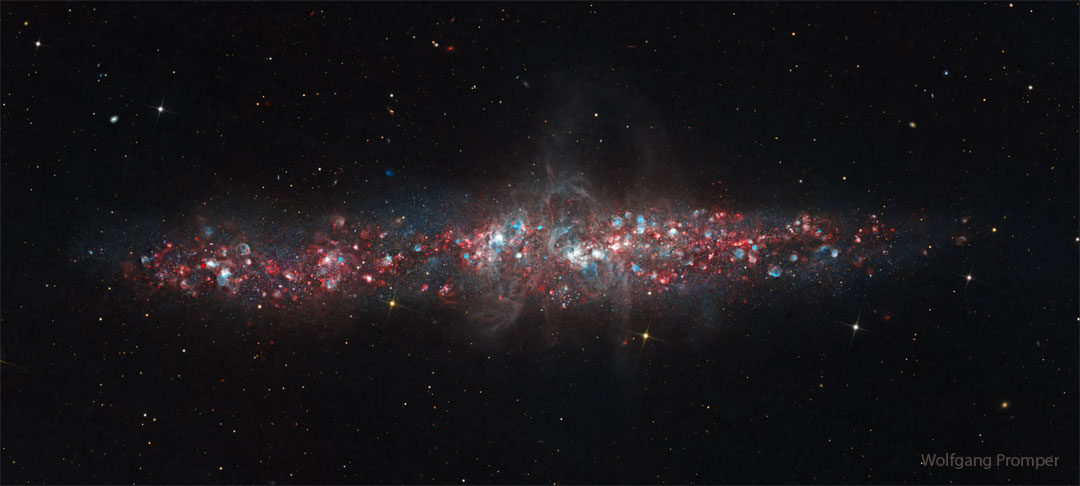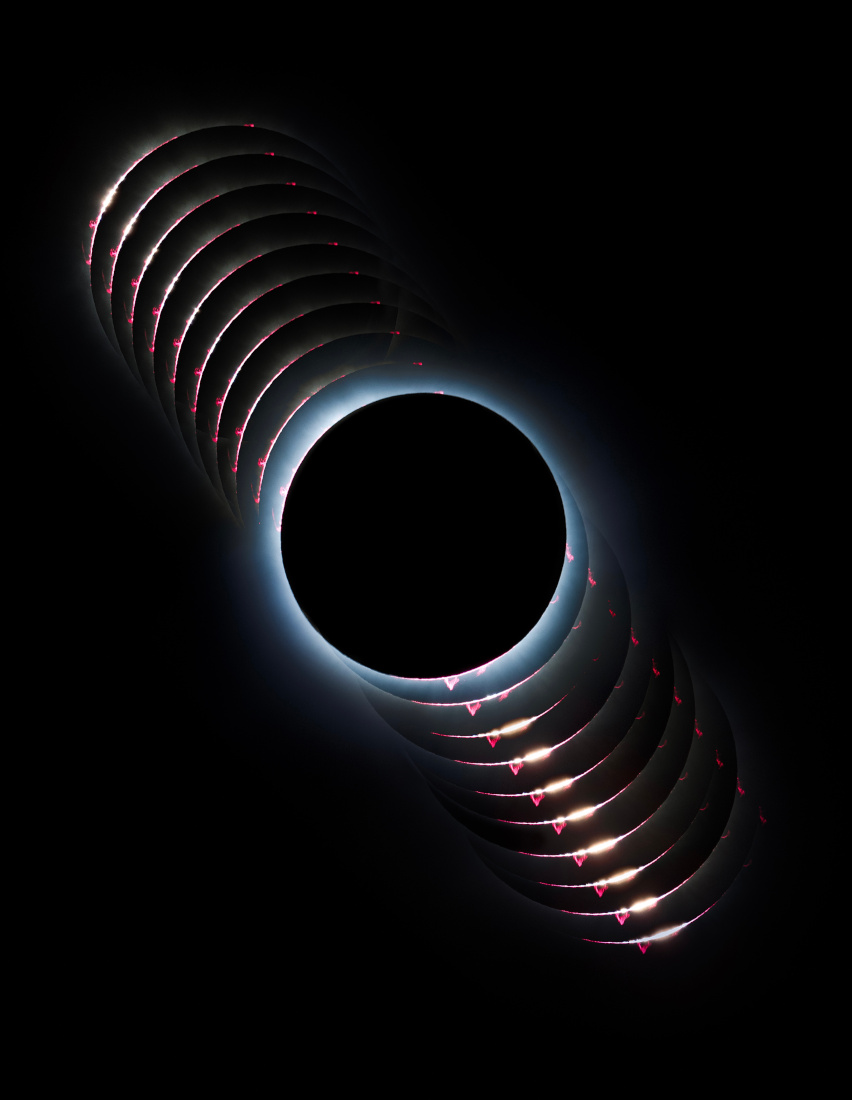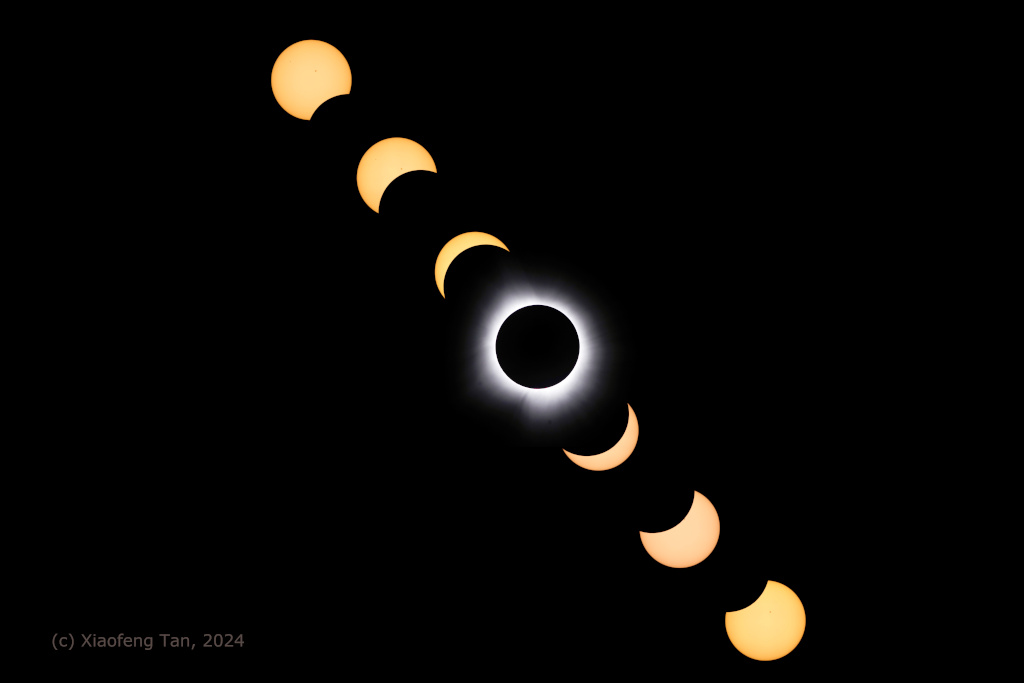Nombre total de pages vues
12/04/2024
SANTé/MEDECINE - HISTOIRE - 1928 : découverte de la pénicilline par Fleming
ASTRONOMY -Total Totality
2024 April 12
Image Credit & Copyright: Daniel Korona
Explanation: Baily's beads often appear at the boundaries of the total phase of an eclipse of the Sun. Pearls of sunlight still beaming through gaps in the rugged terrain along the lunar limb silhouette, their appearance is recorded in this dramatic timelapse composite. The series of images follows the Moon's edge from beginning through the end of totality during April 8's solar eclipse from Durango, Mexico. They also capture pinkish prominences of plasma arcing high above the edge of the active Sun. One of the first places in North America visited by the Moon's shadow on April 8, totality in Durango lasted about 3 minutes and 46 seconds.
11/04/2024
SANTé/MEDECINE - Le spectromètre-imageur par résonance magnétique

SANTé/MEDECINE - La compléxité de la tête humaine

SANTé/MEDECINE - HISTOIRE - 1924 : Einthoven et l'électrocardiographe

ASTRONOMY - Eclipse in Seven
2024 April 11
Image Credit & Copyright: Xiaofeng Tan
Explanation: Start at the upper left above and you can follow the progress of April 8's total eclipse of the Sun in seven sharp, separate exposures. The image sequence was recorded with a telescope and camera located within the narrow path of totality as the Moon's shadow swept across Newport, Vermont, USA. At center is a spectacular view of the solar corona. The tenuous outer atmosphere of the Sun is only easily visible to the eye in clear dark skies during the total eclipse phase. Seen from Newport, the total phase for this solar eclipse lasted about 3 minutes and 26 seconds.
10/04/2024
SANTé/MEDECINE - HISTOIRE - 1906 : découverte de la maladie d'Alzheimer

SANTé/MEDECINE - Le fonctionnement de l'oeil humain - Mouvements de l'œil et nerf optique

ASTRONOMY - Planets Around a Total Eclipse
2024 April 10
Image Credit: Stéphane Vetter (Nuits sacrées)
Explanation: What wonders appear when the Moon blocks the Sun? For many eager observers of Monday’s total eclipse of the Sun, the suddenly dark sky included the expected corona and two (perhaps surprise) planets: Venus and Jupiter. Normally, in recent days, Venus is visible only in the morning when the Sun and Jupiter are below the horizon, while Jupiter appears bright only in the evening. On Monday, though, for well-placed observers, both planets became easily visible during the day right in line with the totally eclipsed Sun. This line was captured Monday afternoon in the featured image from Mount Nebo, Arkansas, USA, along with a line of curious observers — and a picturesque tree.
09/04/2024
INVENTEURS TUéS PAR LEURS CREATIONS - Marie Curie

ASTRONOMY - NGC 55: A Galaxy of Nebulas
2026 January 26 NGC 55: A Galaxy of Nebulas Image Credit & Copyright: Wolfgang Promper ; Text: Ogetay Kayali ( MTU ) Explanation: C...

-
2022 September 26 All the Water on Planet Earth Illustration Credit: Jack Cook, Adam Nieman, Woods Hole Oceanographic Institution ; Data ...
-
2025 May 11 The Surface of Venus from Venera 14 Image Credit: Soviet Planetary Exploration Program , Venera 14 ; Processing & Copyri...



